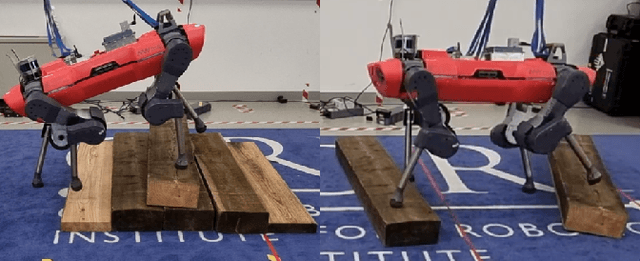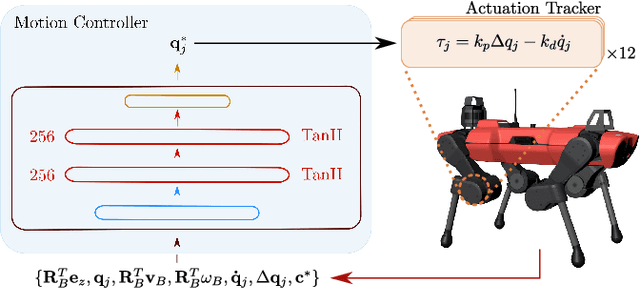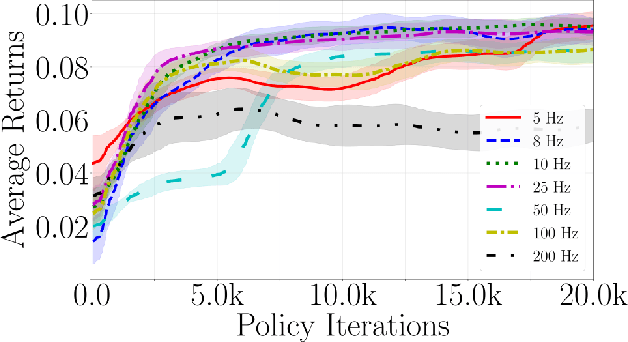Learning Low-Frequency Motion Control for Robust and Dynamic Robot Locomotion
Paper and Code
Sep 29, 2022



Robotic locomotion is often approached with the goal of maximizing robustness and reactivity by increasing motion control frequency. We challenge this intuitive notion by demonstrating robust and dynamic locomotion with a learned motion controller executing at as low as 8 Hz on a real ANYmal C quadruped. The robot is able to robustly and repeatably achieve a high heading velocity of 1.5 m/s, traverse uneven terrain, and resist unexpected external perturbations. We further present a comparative analysis of deep reinforcement learning (RL) based motion control policies trained and executed at frequencies ranging from 5 Hz to 200 Hz. We show that low-frequency policies are less sensitive to actuation latencies and variations in system dynamics. This is to the extent that a successful sim-to-real transfer can be performed even without any dynamics randomization or actuation modeling. We support this claim through a set of rigorous empirical evaluations. Moreover, to assist reproducibility, we provide the training and deployment code along with an extended analysis at https://ori-drs.github.io/lfmc/.
 Add to Chrome
Add to Chrome Add to Firefox
Add to Firefox Add to Edge
Add to Edge